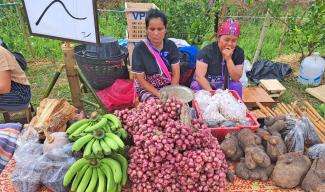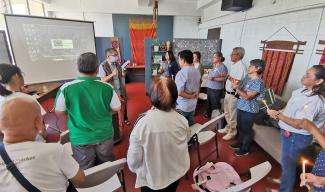The Karen people are among the Indigenous Peoples from Northern Thailand. Their relationship with the forest is an important part of their identity. Their political, social, and economic relationships and activities are deeply attached to and dependent on the forest, their environment.
However, rotational farming, a traditional farming system of the Karen, has been viewed as negative in the discourse of environmental sustainability. Indigenous Peoples in Northern Thailand have been blamed for the destruction of the forest and its biodiversity because of this farming method. It became an excuse to undermine their ownership and management of their own territories and to legitimize the government’s move to disposess them of their land, turning it into so-called ‘conservation areas’ that the indigenous community could no longer freely access.
Public awareness and understanding of rotational farming, along with the indigenous traditions on the use of forest resources, is still very limited.
To address these entire discourse built on lack of knowledge and misunderstandings, the Pgakenyaw Association for Sustainable Development or PASD, organized “the Rotate Festival.” Held in Chaing Mai on 27 and 28 January 2024, the festival was organized to inform and show the Pgakenyaw (more known as Karen) way of life and their relationship with nature, and how it is in fact reflected in rotational farming.
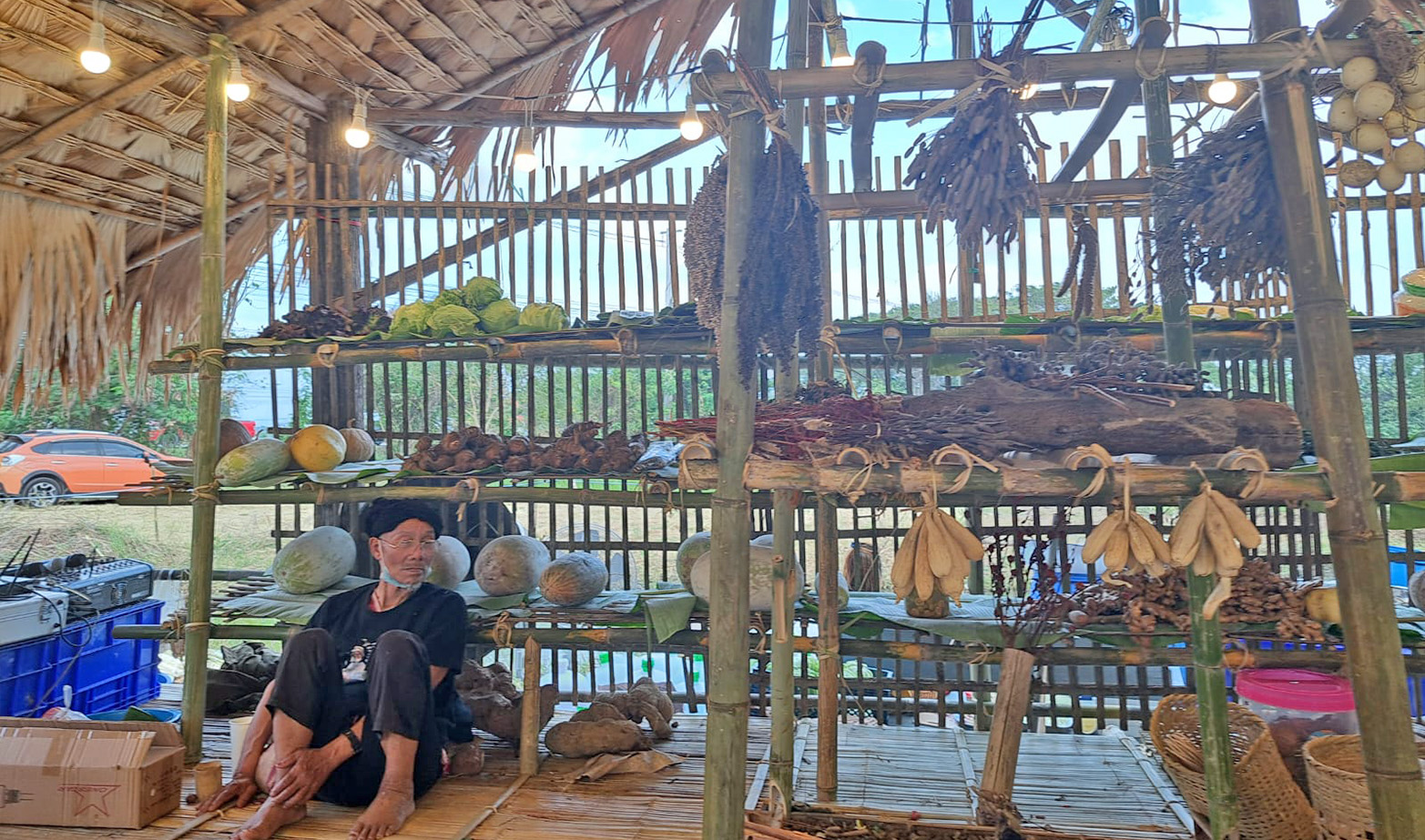
“Life,”according to Pi Mulu, like rotational farming, “must rotate. Food must rotate. People must rotate.” Seeds, if not ‘rotated’ or planted back, will be gone. If the young people do not take on the role that the elders played, the generation will lose their identity as Pgakenyaw, which would entail losing their present social norms, customary use and management of their territory, traditional ways of production, etc. “Rotate” is an assurance of continuing what is, and contrary to being associated with destruction, is actually an action for sustainability
In rotational farming, a new area is cultivated once the crops have been harvested, allowing the previously cultivated land to fallow, or to regain its fertility.
In the festival, the community prepared exhibitions and performances, markets, organized workshops, and screened a documentary. It provided a learning space, bringing together the general public and the Karen people.
Karen Cuisine: In the festival, they provided food made with ingredients from rotational farms and seasonal produce from this community. They even had a cooking demonstration of some of their traditional dishes.
The Rotate Market: In the rotate market, the community displayed and sold products from their rotational farm. They offered varieties of seeds, roots and fruits, and also forest products such as herbal medicines, honey. They also sold coffee products and fermented beverages the Karen produced. They showed indigenous innovations and traditional knowledge in relation to nature such as processes in collecting fruits for fermentation, and herbal medicines.
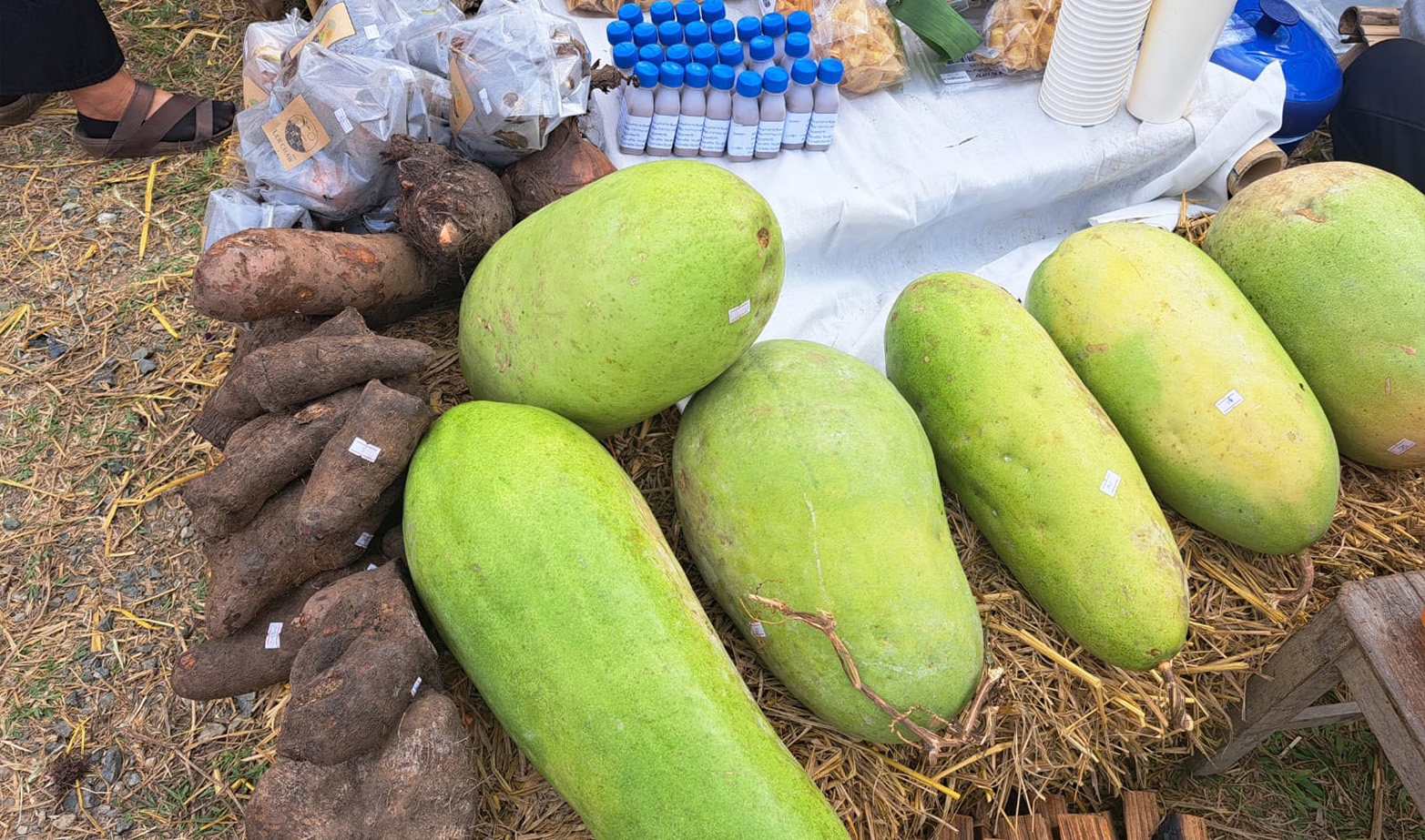
The workshops: The festival also had workshops, such as on the culinary heritage of the Pgakenyaw community, innovations on growing coffee, and natural dyeing. The community members shared their way of sustainable coffee production that would not harm the environment. The Huey Eh Kang women group called the Che Su Mu showed natural dyeing by using the bark of the trees, the leaves, and flowers from their forest.
Art Gallery and Musical Performance: In the art gallery, they exhibited photos of activities in rotational farming, highlighting the good practices such as the making of a firebreak. There were also photos of spiritual activities reflecting the Karen People’s respect of nature.
Singers from the community shared songs about community livelihood activities (way of life), stories about community life and their relationship with nature.
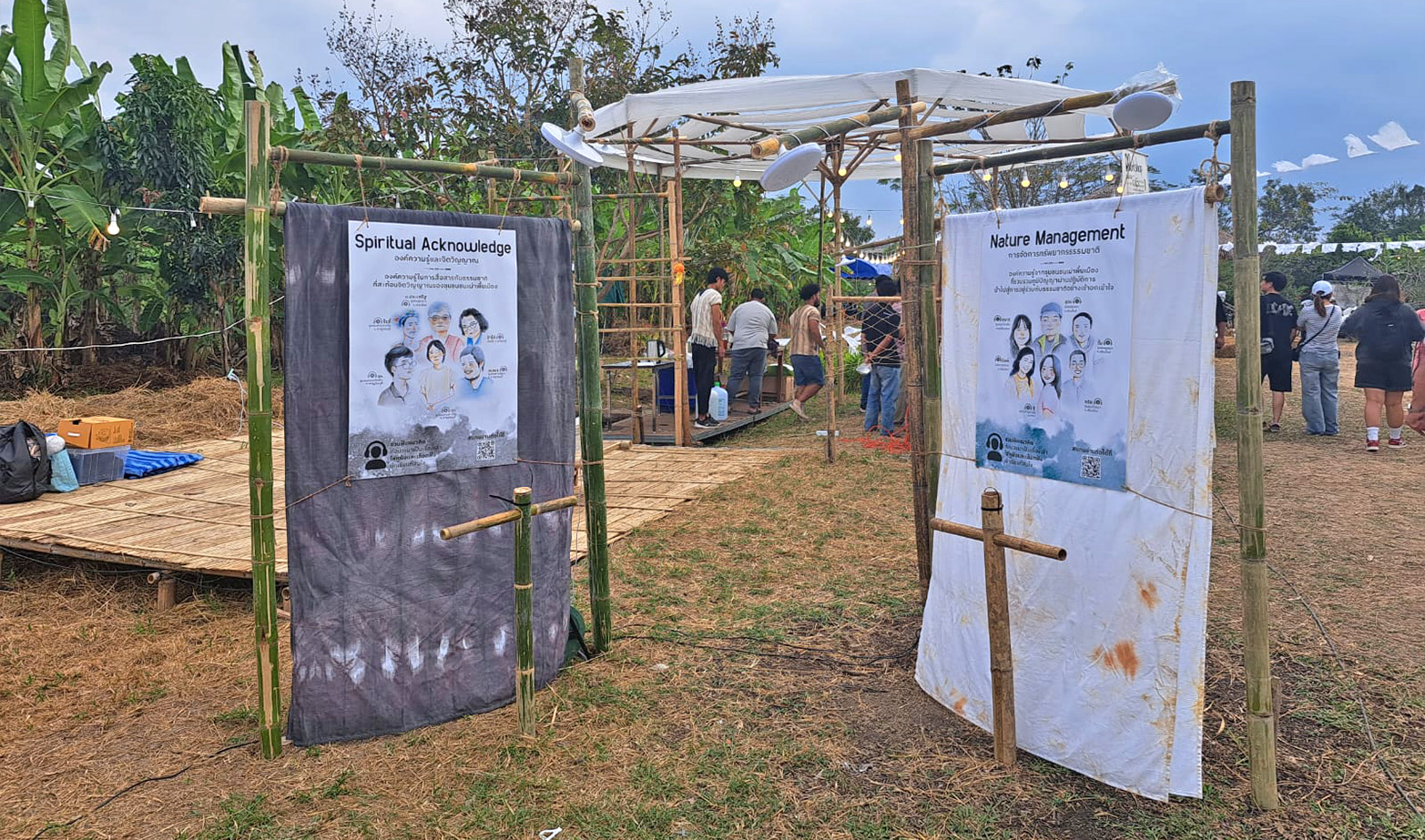
The Rotate Festival shows how the Karen People maintain a way of life in harmony with nature, improving the resiliency of the community through a traditional farming system, while innovating for income generation. It promotes a sustainable way of life that counters market driven and ecologically unsustainable farming systems.
